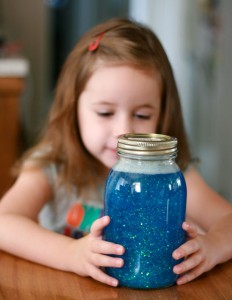Help Your Child Reduce Stress and Build Confidence
Children today are more stressed than ever. The pressure to measure up to peers, please parents and teachers, perfect their after-school activities, and manage feelings can be tricky. When anxiety or pressure is overwhelming, a child's confidence declines, making feeling good much more difficult. Many kids who have symptoms of stress or inability to focus at school have underlying anxiety, which is the function of their behaviors and or thought patterns.
Parents Struggling to Help Children with Anxiety
Parents have a tricky time helping their kids with this. A new study shows that parents who are exposure coaches, helping their child manage the anxiety with skills, have children who are less anxious and have higher levels of self-esteem. The Child and Adolescent Anxiety Disorders program at the Mayo Clinic found that gradually exposing children to things they fear most and teaching parents to act as "exposure coaches" rather than enable their children to avoid things and situations as a protective measure has a high success rate. Teaching them tools to feel less anxious is a step in building a confident kiddo.
Childhood Anxiety Symptoms Can Be Difficult to Pin Down
 Jay is a outgoing 9 year old, who is looking forward to becoming a 4th grader next year. He talks to his friends after school, socializes well on the playground, but can’t seem to stay focused in the classroom. His teachers notice that he zones out and doesn’t appear to be paying attention. At night, he cannot fall asleep, telling his mother that his brain “won’t turn off.” He often becomes wide eyed and hyper in social situations, never the less, engaging with his buddies. He tells his parents he is worried about playing soccer next fall because he may have too much homework. He has started to pick his finger nails and bite his lips, often unconsciously, until his parents comment. Jay is anxious.
Jay is a outgoing 9 year old, who is looking forward to becoming a 4th grader next year. He talks to his friends after school, socializes well on the playground, but can’t seem to stay focused in the classroom. His teachers notice that he zones out and doesn’t appear to be paying attention. At night, he cannot fall asleep, telling his mother that his brain “won’t turn off.” He often becomes wide eyed and hyper in social situations, never the less, engaging with his buddies. He tells his parents he is worried about playing soccer next fall because he may have too much homework. He has started to pick his finger nails and bite his lips, often unconsciously, until his parents comment. Jay is anxious.
Often times, some of these child anxiety symptoms look like other diagnoses, and although Jay may not meet criteria for a full blown anxiety disorder, he sure is suffering. According to a report released by the Centers for Disease Control and Prevention, about 1.8 million children under 18 currently have anxiety disorders. Some studies suggest as many as 10% of children suffer from phobias. Many go unnoticed. When kids develop an anxious response to stressors and have overwhelming thoughts, it is difficult for them to develop healthy coping skills. In turn, this impacts their self-esteem and confidence. (Read: Tools for Building Self-Esteem in Children)
Instead of running to the doctor, try some of these tips to start to reduce anxiety and build confidence in your child. When the anxiety is too overwhelming, seeking out the advice of a mental health professional instead of a pediatricians, can be helpful. Medications for youngsters generally don't touch the deeper difficulties, rather they stifle the behaviors. So make sure to get an accurate assessment if the anxious behaviors or their self-esteem is becoming more problematic.
How Can We Help Kids Manage Anxiety
 When presented in a fun and exciting way, kids learn coping skills and confidence to manage stressful situations. Providing them with skills and tools we give them control to pick the techniques that would like to employ, we are giving them the opportunity to figure out what really works for them, rather then what we want to work for them. It instills a sense of knowing themselves at a very young age, which is a quality that builds self-esteem building, confidence.
When presented in a fun and exciting way, kids learn coping skills and confidence to manage stressful situations. Providing them with skills and tools we give them control to pick the techniques that would like to employ, we are giving them the opportunity to figure out what really works for them, rather then what we want to work for them. It instills a sense of knowing themselves at a very young age, which is a quality that builds self-esteem building, confidence.
Write it out. When you get worries out of your head and on to a to-do list or journal, life becomes a bit more manageable. Help your child do this by giving them a note pad and some colorful markers. If the child is old enough have them write out all the things that are on their mind (they don’t have to go over them with you but allow them to get it out), then prioritize it. Many kids say this is helpful before bed, so that they are not stuck worrying while attempting to fall asleep. When they get all the thoughts in their head down on paper, it allows for space to be made to actually do them, plus you can see what really is stressful for them and help. Have younger kids list these things out loud (or drawn them) while you write. Then let them chose what they want your help with. When they are done, they can crumple, rip or get rid of the list.
Discharge with activity. A friend of mine has her son run around the track before church. Why? He is less fidgety, better able to focus, and reports feeling calmer when he is done. Intense exercise, even in short spurts, helps eliminate some of the pent up anxious energy and allows for kids to feel calmer. Jumping jacks, a quick bike ride, a couple of fast laps in the pool can help decrease anxiety. This is also a coping skill, when they have the skills they are better equip build more confidence. After they are done it’s a perfect opportunity to talk about what they are feeling, as it they are more regulated.
Mindfulness in the Moment. I love the idea of the The Mind Jar. A mother, and who spent years in the mental health field created The Mind Jar to help relax her daughter through the first few weeks of kindergarten. This calming tool is fun to make and allows kids to focus on calming down. She says:
I only use the Mind Jar to get through moments of fear or anxiousness with my kids. If they are worried about school, or a family member they know is ill, or strife with a friend. I’m usually sitting with them and we’ll talk it out, as we both enjoy the glitter show. It never occurred to me to hand them a glass jar full of liquid and glitter while they were in the throes of a tantrum.
What is a mind jar? It’s a jar full or glitter glue, glitter and water. Swirl it around and relax while you watch the glitter fall to the bottom of the jar. A great tool for teaching mindfulness.
Although these are just a few ideas, I encourage you to look deeper into creative and effective tools to help your child develop coping skills. Kids don't want you to fix the problem, they want you to help them learn how to fix it.
Emily is the author of Express Yourself: A Teen Girls Guide to Speaking Up and Being Who You Are.You can visit Emily’s Guidance Girl website. You can also find her on Facebook, Google+ and Twitter.
APA Reference
Roberts, E.
(2013, May 29). Help Your Child Reduce Stress and Build Confidence, HealthyPlace. Retrieved
on 2026, March 5 from https://www.healthyplace.com/blogs/buildingselfesteem/2013/05/help-your-child-reduce-stress-and-build-confidence
Author: Emily Roberts MA, LPC
Good self-esteem is important because it helps children to hold their heads high and feel proud of themselves and what they can accomplish in life.
Children today are faced with so much pressure to perform not only in school but also in society and in the homes. Understanding how to look for the signs of anxiety in your child and how to help them cope is the first step in assisting them to recognize the driving forces behind anxiety. Before they turn to negative and harmful ways of coping with stress seek out anxiety therapist to learn how to assist your child.
I appreciate that you suggest building kids' self-esteem when they're anxious rather than medicating as a first resort. What I've learned about self-esteem is that it begins with knowing where your value comes from. We tend to be anxious about things that affect our perception of our worth. It could be relationships, work, possessions, looks, etc., but most of us have that a few things that we get most of our value from and worry about those. Great article, thanks for sharing!
Thanks for your kind words John! Always appreciate the support and a fellow confidence builder!
